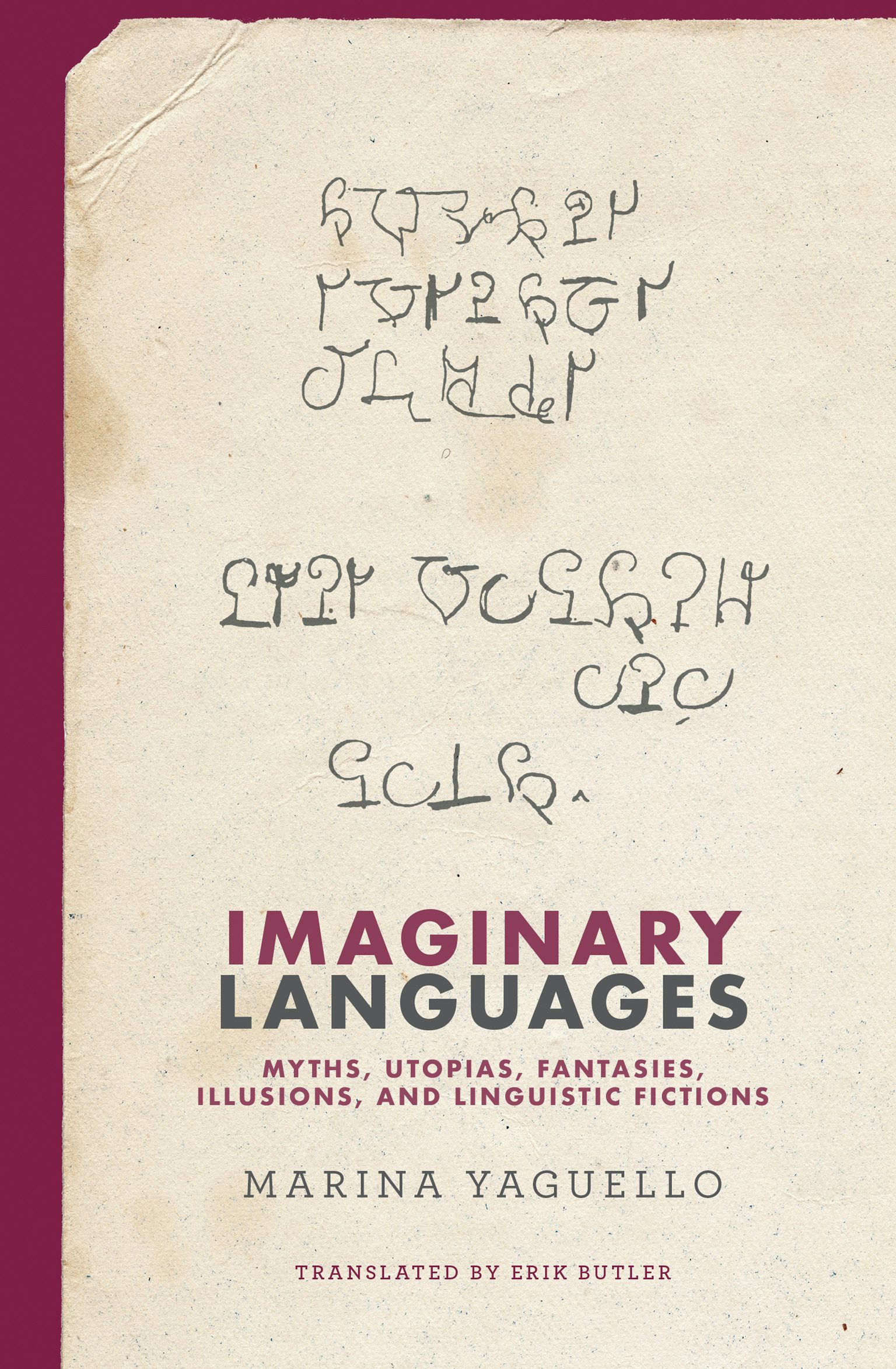Imaginary languages: myths, utopias, fantasies, illusions, and linguistic fictions
 An exploration of the practice of inventing languages, from speaking in tongues to utopian schemes of universality to the discoveries of modern linguistics.
An exploration of the practice of inventing languages, from speaking in tongues to utopian schemes of universality to the discoveries of modern linguistics.
In Imaginary Languages, Marina Yaguello explores the history and practice of inventing languages, from religious speaking in tongues to politically utopian schemes of universality to the discoveries of modern linguistics. She looks for imagined languages that are autonomous systems, complete unto themselves and meant for communal use; imaginary, and therefore unlike both natural languages and historically attested languages; and products of an individual effort to lay hold of language. Inventors of languages, Yaguello writes, are madly in love: they love an object that belongs to them only to the extent that they also share it with a community.
Yaguello investigates the sources of imaginary languages, in myths, dreams, and utopias. She takes readers on a tour of languages invented in literature from the sixteenth to the twentieth century, including that in More’s Utopia, Leibniz’s “algebra of thought,” and Bulwer-Lytton’s linguistic fiction. She examines the linguistic fantasies (or madness) of Georgian linguist Nikolai Marr and Swiss medium Hélène Smith; and considers the quest for the true philosophical language. Yaguello finds two abiding (and somewhat contradictory) forces: the diversity of linguistic experience, which stands opposed to unifying endeavors, and, on the other hand, features shared by all languages (natural or not) and their users, which justifies the universalist hypothesis.
Recent years have seen something of a boom in invented languages, whether artificial languages meant to facilitate international communication or imagined languages constructed as part of science fiction worlds. In Imaginary Languages (an updated and expanded version of the earlier Les Fous du langage, published in English as Lunatic Lovers of Language), Yaguello shows that the invention of language is above all a passionate, dizzying labor of love.
zum Buch im KatalogPlus
zum Buch auf der Verlags-Website
Ultraminor world literatures
This pathbreaking collection explores a new concept in world literature studies. Going beyond the binary opposition of “major” and “minor” literatures, the ultraminor encompasses the literatures of smaller but vibrant regional and linguistic communities. Using cases as varied as the literatures of Malta, Mauritius, and the Faroe Islands, contemporary Nahuatl novels, Kafka in Prague, and Shakespeare in Naples, the ten essays in this volume take up questions of scale and circulation, the interplay of languages and dialects, and ultraminor writers’ resistance to translation and their reliance on it. Ultraminor World Literatures will be of interests to students and scholars of comparative and world literature and to anyone concerned with the ongoing life of unique cultural communities around the world.
zum Buch im KatalogPlus
zum Buch auf der Verlags-Website
Weitere Titel können Sie in unseren Neuerwerbungslisten für die Sprach- und Literaturwissenschaften allgemein entdecken!
